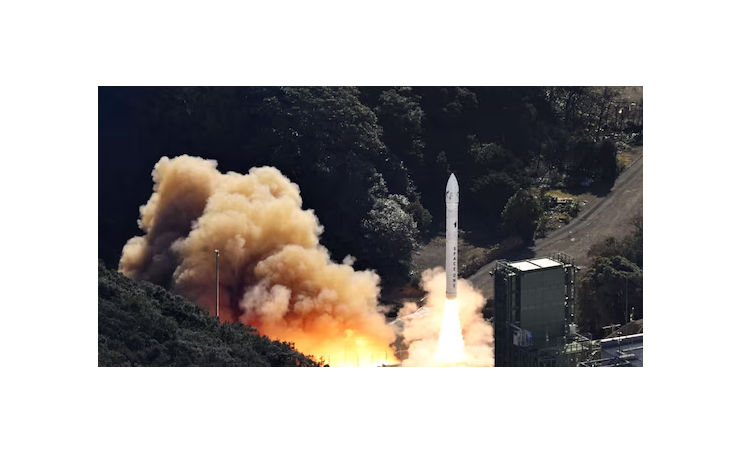News Flash
News Flash

TOKYO, Dec 18, 2024 (BSS/AFP) - A space rocket built by a Japanese startup blasted off on Wednesday but was later seen spiralling downwards in the distance as the company said the launch attempt had failed.
It was the second attempt by Space One to become the country's first private firm to put a satellite into orbit, after the first try in March ended in a mid-air explosion.
This time its solid-fuel Kairos rocket had been carrying five satellites, including one from the Taiwan Space Agency and others designed by Japanese students and corporate ventures.
Spectators gathered near the company's coastal Spaceport Kii launch pad in Japan's western Wakayama region expressed their disappointment to television cameras.
"I'm so shocked," one woman said after the firm announced the failure. "I had been hoping it would go into orbit."
News reports showed the slim, white 18-metre (60-foot) rocket soaring far into the sky.
This time around there was no dramatic explosion -- unlike in March when the rocket carrying a small government test satellite was ordered to self-destruct due to technical problems just seconds after launch.
Space One said it would hold a press conference on Wednesday afternoon to discuss its latest setback.
"Kairos was launched... but the rocket terminated its flight after judging that the achievement of its mission would be difficult," the company said in a statement, adding that the details were under investigation.
Space One was founded in 2018 by businesses including Canon Electronics, IHI Aerospace, construction firm Shimizu and the government-run Development Bank of Japan.
It wants to establish a satellite-launching service to tap into rapidly expanding global demand.
Private companies say they can offer cheaper and more frequent space exploration opportunities than governments.
Space One hopes to emulate Elon Musk's SpaceX, which has contracts with NASA and the Pentagon.
The Japan Aerospace Exploration Agency (JAXA) is also on a mission to become a major player for satellite launches.
JAXA's next-generation H3 launch system had experienced multiple failed take-off attempts before a successful blast-off in February.
Also this year, Japan landed an unmanned probe on the Moon -- albeit at a crooked angle -- making it just the fifth country to achieve a soft landing on the lunar surface.
But JAXA had to delay the launch of a compact, solid-fuel Epsilon S rocket after a recent engine test resulted in a large fire.